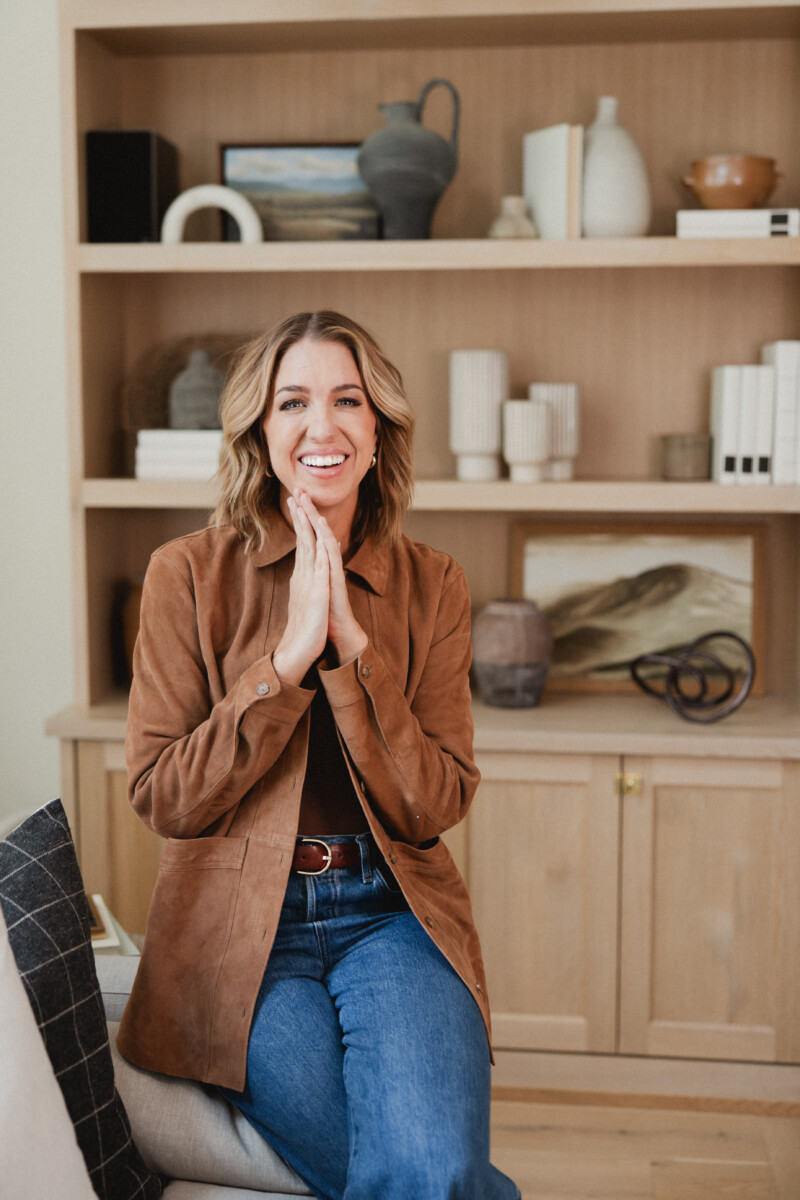
Apple Podcasts | Spotify | Pandora
We’ve all been in a disagreement with someone we love deeply. Whether it’s a friend, family member, or even a colleague, these conflicts can be challenging and emotionally charged, especially when our values and beliefs clash.
It’s not enough to just “avoid the topic” or simply refuse to see these friends and family members anymore… and frankly, that’s not productive, either.
This is why I’m thrilled to have my guest today speak to us about how to love others through our disagreements and stay connected with those who matter most in a divided world.
Brit Barron is a renowned speaker, teacher, and storyteller whose work has sparked profound conversations around sexuality, spirituality, race, and personal development. As the author of ‘Worth It: Overcome Your Fears and Embrace the Life You Were Made For,’ Brit has captivated audiences with her unique perspective and inspiring message.
Her latest book, ‘DO YOU STILL TALK TO GRANDMA?’, dives deep into the complexities of our relationships in a world increasingly influenced by social media and cancel culture.
Brit explores how we navigate relationships with those we love but disagree with, and how we confront and learn from our past selves. I LOVE how she brings a fresh and compassionate approach to understanding these challenges and offers valuable insights on fostering genuine growth and connection!
In this episode, we discuss how to manage the tension between relationship and accountability, the impact of binary thinking on our interactions, and the ways we can create safe spaces for people to learn and evolve.
Brit’s perspective on embracing mistakes, handling disappointment, and navigating personal and communal growth promises to be both enlightening and empowering… So let’s dive in!
The Other Side of Cancel Culture
Brit shared that the inspiration for her book began in 2021, following the tumultuous events of 2020. She noticed how online conversations were seeping into real-life relationships, particularly with the rise of cancel culture.
It was alarming to see friends questioning whether they should still talk to family members who held different political views.
Brit reflected on how we seemed to be canceling even our grandmas, which made her wonder if there was a way to maintain relationships with those we disagree with while still holding true to our convictions.
She emphasized that the social movement for accountability had swung too far, leading to a sense of annihilation rather than constructive dialogue. Brit’s three-year journey of observing these dynamics led her to ask, “What is on the other side of cancel culture?”
She felt compelled to explore how we can move forward and maintain connections with those who hold different beliefs…. And that’s how ‘DO YOU STILL TALK TO GRANDMA?’ was born.
The State of Division in Our World
As we discussed the current state of the world, Brit pointed out that we have never felt more divided. It seems that many people enter conversations looking for points of disagreement rather than common ground.
This division often leads to feelings of isolation and loneliness. She argued that one of our deepest human needs is a sense of belonging, and in our quest for belonging, we often cling to extreme and polarizing sides.
Brit shared a fascinating story from her book about a man she saw in a documentary about flat earthers. This man, despite being presented with scientific evidence, expressed that he didn’t care whether the Earth was flat or round.
What mattered to him was the sense of community he found among fellow flat earthers. Do you see how our desire for belonging can sometimes overshadow our commitment to truth?
The Fragility of Belonging
Brit elaborated on the fragility of belonging in today’s society. While we crave connection, the fear of being ostracized for expressing differing opinions can lead to a superficial sense of belonging.
We may feel compelled to conform to group norms, but this often leaves us feeling isolated and alone. Brit emphasized that if we cannot hold nuance for ourselves, we will struggle to do so for others.
She also touched on the idea of “progressive amnesia,” where people forget their past beliefs and experiences as they adopt new ones. Brit shared her own journey of transformation, acknowledging that she has held beliefs in the past that she no longer agrees with.
This self-awareness allows her to approach others with empathy and understanding, rather than judgment.
The Importance of Change
As we continued our conversation, we explored the concept of change and how it plays a role in both division and connection. Brit shared a poignant quote:
“To love someone is to experience 1,000 tiny birthdays of who they’re becoming and 1,000 tiny funerals of who they were.”
I love this quote because it perfectly encapsulates the essence of relationships—accepting that people evolve and change over time.
However, Brit acknowledged that change can be daunting, especially when it threatens existing connections. She encouraged listeners to reflect on their own experiences of change and how they navigated those transitions.
Brit also highlighted the importance of giving others the permission to change, as we often hold onto outdated versions of people.
Navigating Difficult Conversations
One of the most pressing questions we face today is how to engage in meaningful conversations with those who hold opposing views. Brit emphasized that the key to successful dialogue lies in the existing relationship.
With strangers, it’s often futile to engage in debate, but with family and friends, we have the opportunity to foster understanding.
She also shared her father’s wisdom: “The three most powerful words in the English language are ‘help me understand.'”
By approaching conversations with curiosity and a willingness to listen, we can create a safe space for dialogue. Brit reminded us that allowing someone to share their perspective does not mean we agree with them; it simply means we are open to understanding their viewpoint.
The Role of Empathy
As we discussed the importance of empathy, Brit pointed out that we often forget that everyone has their own narrative shaped by their experiences. When we encounter someone with differing beliefs, it’s essential to recognize that their perspective is valid, even if we don’t agree with it.
Brit encouraged listeners to think about moments in their own lives when they changed their minds and how those shifts often came from personal stories rather than mere facts.
She also highlighted the danger of echo chambers, where we surround ourselves only with people who share our beliefs. This can lead to a lack of understanding and empathy for those who think differently. Brit urged us to challenge ourselves to engage with diverse perspectives, even if it feels uncomfortable.
Creating Safe Spaces for Learning
As we wrapped up our conversation, Brit shared her thoughts on how to create environments where people feel safe to learn, evolve, and change their minds. She emphasized that it starts with us taking responsibility for fostering those spaces.
Instead of waiting for others to initiate change, we can set the tone for open dialogue and understanding.
Brit also discussed the difference between consequences and punishments. While consequences are natural outcomes of our actions, punishments often stem from shame and can hinder growth.
By focusing on accountability and understanding, we can create a culture that encourages learning from mistakes rather than shaming individuals for them! Because honestly, making mistakes is a natural part of being human.
Brit reminded us that we often hold ourselves to unrealistic standards, believing we can live without making any errors. However, mistakes are opportunities for growth and learning.
If you found this conversation as enlightening as I did, preorder Brit’s book, ’DO YOU STILL TALK TO GRANDMA?’, which is out October 1, 2024! It’s full of practical, tactical advice for all of us who are dedicated to having enriching relationships with those we love. Pre-order Brit’s book here!
Thank you to our Goal Digger Sponsors
- Learn how your business can grow better with HubSpot
- Your home might be worth more than you think. Find out how much!
- Make B2B marketing everything it can be and get a $100 credit on your next campaign. Claim your credit here!
- Get 20% off the $25 Working Genius assessment with code GOALDIGGER at checkout.
- Cut your wireless bill to $15 a month with Mint Mobile.
- Post your job for free on LinkedIn!
- Join millions to protect what we love—human-made problems need human-made solutions.
- Get all the Goal Digger goodness you love COMPLETELY ad-free. Subscribe today!




